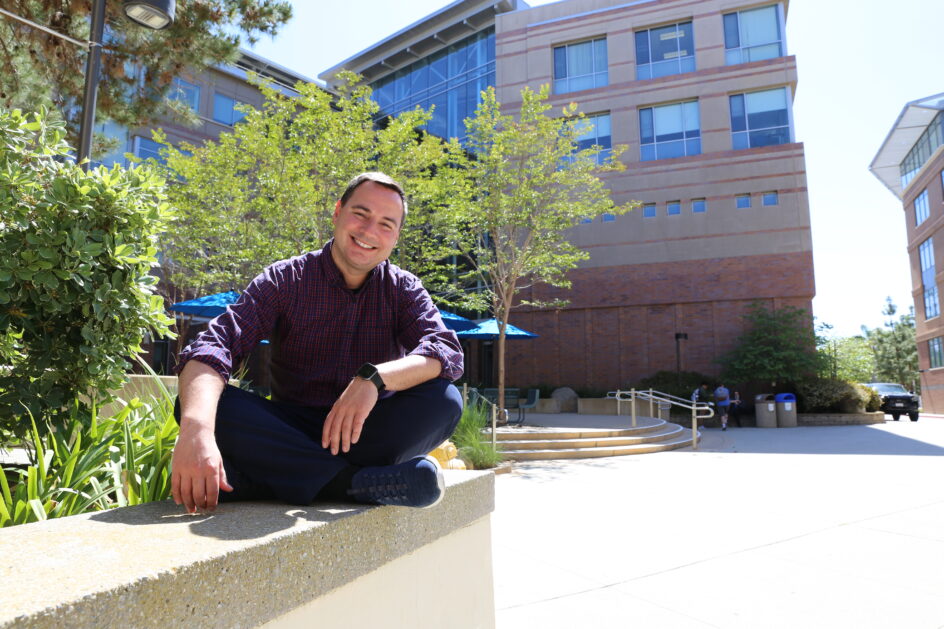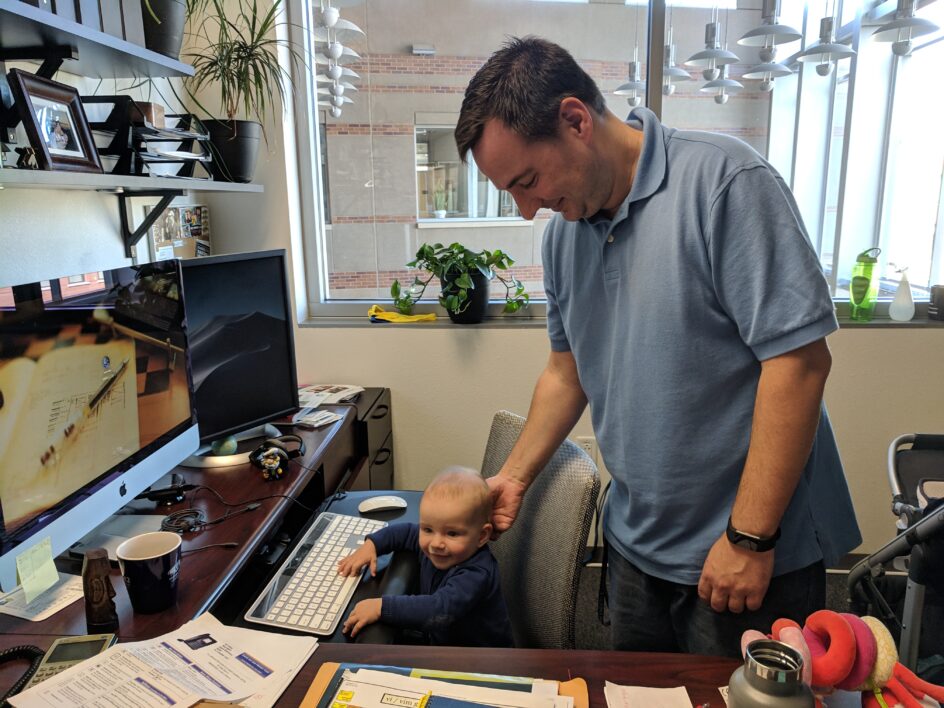Curious Mind, Compassionate Heart
The following excerpts are from an article that first appeared in CALIT2 news.

Curiosity killed the cat, goes the old adage. But for Sergio Gago-Masague, curiosity created an unexpected career.
The path to becoming a UC Irvine assistant professor of teaching in computer science was winding and uncertain for Gago-Masague. Growing up in Barcelona, Spain, in a working-class family, he found himself more concerned with making a living. His father, an electrician, urged him to find a job — a trade like his. Gago-Masague did just that: “I have always worked since I was 18.”
But his curiosity enticed him to look beyond the limits of a single trade. It also led him to be the first in his family to go to college.
. . .
After earning his bachelor’s degree in engineering from [the Polytechnic University of Catalonia] UPC, Gago-Masague worked in the private sector for more than five years in product and system design. He started as a product engineer and loved the work. But after six months, he realized he had learned as much as he could. Looking at his colleagues who had been there for 15 years, Gago-Masague became concerned about being stuck. He decided earning a doctorate would give him flexibility and the opportunity to do research.
Gago-Masague continued to work. “I’ve always had one foot in academia and one foot in industry,” he explains. He eventually changed jobs to focus on robotics, and in 2012, his employer co-sponsored him to enroll in the California-Catalonia Balsells Fellowship Program at UCI. Established in 1995 by Pete Balsells and his family, the program’s main goal is to prepare the most talented students from Catalonia in their pursuit of graduate degrees and postdoctoral training in engineering or computer sciences. As a testament to the program’s success, Gago-Masague is now the associate director of the program.
Why UCI? “I fell in love with California,” shares Gago-Masague. “It seemed like a nest of technology with a diverse population. And Orange County seemed like it could become the next Silicon Valley, not vertically, but horizontally.” Even though he had to leave everything behind, and adapt to a new country and culture, he made the leap and came alone, telling his then-girlfriend, now wife, Susana that he would be back in a year.
. . .
Gago-Masague also started interacting with G.P. Li, CALIT2 director. “I showed him what I was doing, and he said there was an opportunity to continue similar work in CALIT2.” That work led to multiple collaborations, which included principal investigator Michelle Fortier, associate professor in the Sue & Bill Gross School of Nursing. Fortier was looking for support to implement Pain Buddy, a game-based interface to help pediatric cancer patients communicate their symptoms, particularly their pain levels.
“During chemotherapy or other types of therapies, it’s very important to know patients’ symptoms and pain levels. But many times, children can’t communicate well with clinical staff,” says Gago-Masague. “Also, parents may not be as objective as we would wish them to be.”
. . .
His participation in Pain Buddy and other health-related projects has been recognized by National Institutes of Health awarding $6.9 million in funding. One of these was Mi Propio Camino (My Own Way), an app developed to help Spanish-speaking patients with hypertension remember to take their medications and encourage lifestyle changes. The project was funded by the NIH’s National Heart, Lung and Blood Institute, and Gago-Masague worked with John Billimek, principal investigator and associate professor and vice chair of UCI’s Family Medicine in the School of Medicine, to build an Internet of Things intervention that addresses a local, medically underserved Latino community. However, the applications can reverberate into numerous areas of health and wellbeing everywhere through its user-friendly interface and thoughtful approaches.
Concurrently, in 2011, Gago-Masague started collaborative research with the California Plug Load Research Center (CalPlug), which seeks to improve energy efficiency in the use and design of plug-load devices.
Gago-Masague also created and heads the CALIT2 Engaging Technology and Application Design (ETAD) Lab. He has been increasingly involved in ICS-focused research such as pervasive computing, user-centric software design, serious games, IoT and active learning. Gago-Masague has received grants for continuing this work, including an NSF-sponsored cybersecurity project now in its second year.
But all of his varied interests have a common goal: creating interfaces that communicate meaningfully and improve people’s lives.
While continually excited by his own research, Gago-Masague became increasingly interested in helping others. He found he truly enjoyed mentoring students, which led him to consider teaching. He began as a lecturer and from 2015-18, he taught a variety of courses in computer science. In early July 2018, Gago-Masague became an assistant professor of teaching at the Bren School of Information and Computer Sciences.
. . .

He’s actively engaged in the future generations of college students.
He has been developing a Capstone Project program in computer science to help fix the “leaky STEM pipeline” and boost employment opportunities. “Underrepresented STEM students don’t always have the opportunities or confidence to compete for highly qualified jobs or to see how their work in the field could help their communities,” he explains. “A capstone program with industry-sponsored projects provides students with valuable hands-on experience in real-world projects and allows them to be more competitive for seeking employment.”
“It’s a win-win situation,” he adds. “Students get experience and companies have a chance to train and screen excellent potential interns and employees.”
. . .
Through his research, teaching and service, Gago-Masague is paving the way for students to succeed in their programs and realize their dreams, whatever path they may take.
— Tonya Becerra
See the full article in CALIT2 News.